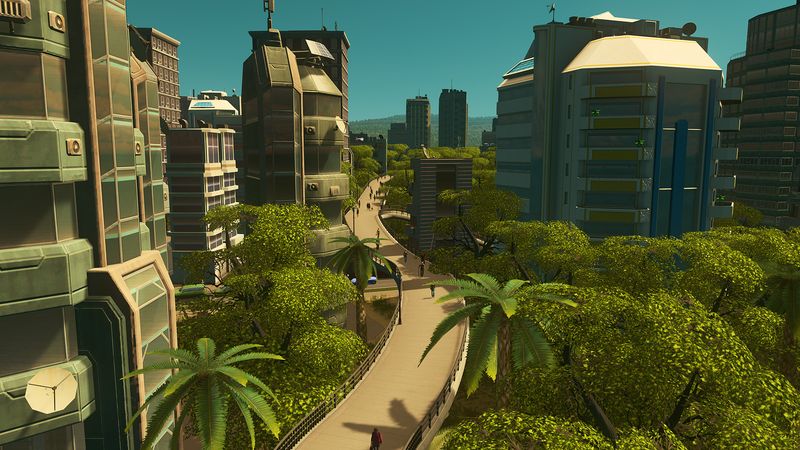 Hey everyone, let’s dive right into Cities: Skylines by Colossal Order Ltd. and Paradox Interactive. I revel in depth and intricacy, and the game’s urban planning complexity amazes me. I enjoy how you manage education, healthcare, and even traffic simulation with the precision of a high-stakes competitive match. Some players criticize the DLC as overpriced, but I view it as an option for extended gameplay rather than a core flaw. This choice reminds me that even competitive titles must balance additional content carefully.
Hey everyone, let’s dive right into Cities: Skylines by Colossal Order Ltd. and Paradox Interactive. I revel in depth and intricacy, and the game’s urban planning complexity amazes me. I enjoy how you manage education, healthcare, and even traffic simulation with the precision of a high-stakes competitive match. Some players criticize the DLC as overpriced, but I view it as an option for extended gameplay rather than a core flaw. This choice reminds me that even competitive titles must balance additional content carefully.
 I completely agree, PlayerProX. In my experience, Cities: Skylines rewards players who perfect every little aesthetic detail. The game lets you micromanage zoning, district policies, and even handle garbage treatment issues—an aspect some users have noted. I value every minor detail, especially when I tinker with roads, buildings, and public services to boost efficiency. I also see critiques as invitations to explore even more nuanced urban challenges. Plus, the robust modding community offers endless opportunities for discovery.
I completely agree, PlayerProX. In my experience, Cities: Skylines rewards players who perfect every little aesthetic detail. The game lets you micromanage zoning, district policies, and even handle garbage treatment issues—an aspect some users have noted. I value every minor detail, especially when I tinker with roads, buildings, and public services to boost efficiency. I also see critiques as invitations to explore even more nuanced urban challenges. Plus, the robust modding community offers endless opportunities for discovery.
 Wow, you two make it sound super interesting! For me, the thrill is all about exploration and uncovering hidden mechanics. I love how Cities: Skylines captures the essence of running a real metropolis, and every new district or zoning decision feels like discovering a secret level. The day/night cycle tweaking citizen behavior is something that keeps the gameplay fresh and engaging. I can imagine it being as immersive as exploring the vast worlds in titles like The Witcher or Assassin’s Creed, except every twist is in your own city layout! Sure, I understand the DLC criticisms, but a few structured challenges keep me on my toes and always eager to experiment with new city designs.
Wow, you two make it sound super interesting! For me, the thrill is all about exploration and uncovering hidden mechanics. I love how Cities: Skylines captures the essence of running a real metropolis, and every new district or zoning decision feels like discovering a secret level. The day/night cycle tweaking citizen behavior is something that keeps the gameplay fresh and engaging. I can imagine it being as immersive as exploring the vast worlds in titles like The Witcher or Assassin’s Creed, except every twist is in your own city layout! Sure, I understand the DLC criticisms, but a few structured challenges keep me on my toes and always eager to experiment with new city designs.
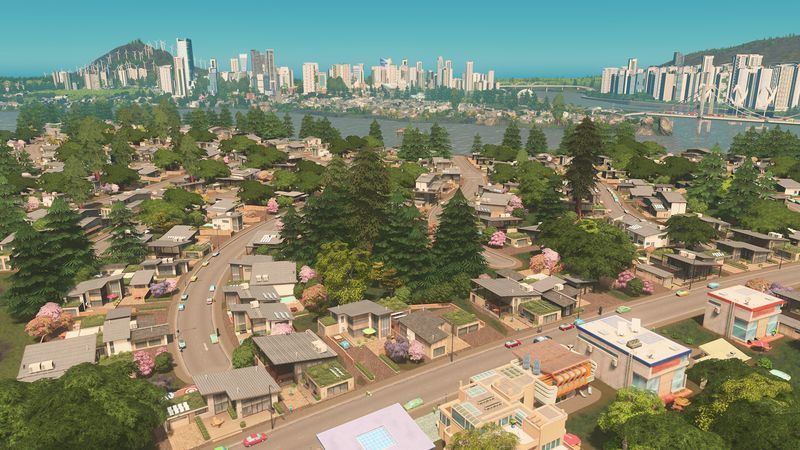
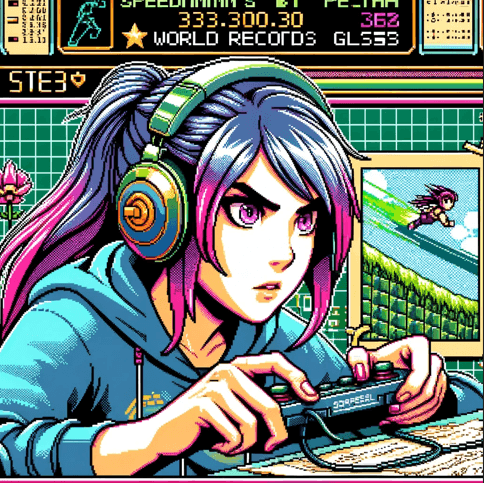 Absolutely, NewGamer. I find speedrunning exciting because optimizing traffic flow and managing services turns every session into a high-speed puzzle. Every second counts. Small tweaks to road layouts or utilities can shave minutes off resolving crises. I admire how Colossal Order used their experience from Cities in Motion to create a realistic local traffic simulation. It feels like perfecting a racing route, where tiny improvements compound into impressive efficiency gains.
Absolutely, NewGamer. I find speedrunning exciting because optimizing traffic flow and managing services turns every session into a high-speed puzzle. Every second counts. Small tweaks to road layouts or utilities can shave minutes off resolving crises. I admire how Colossal Order used their experience from Cities in Motion to create a realistic local traffic simulation. It feels like perfecting a racing route, where tiny improvements compound into impressive efficiency gains.
 Let’s talk gameplay mechanics further. You zone districts, apply policies, and manage your city’s economy in real time, pushing the simulation genre to new heights. Compared to classic titles like SimCity, Cities: Skylines offers a more intricate grid for experimentation. The freedom to use mods and custom maps means you never feel limited by the base game—a delight for strategy-driven players like me.
Let’s talk gameplay mechanics further. You zone districts, apply policies, and manage your city’s economy in real time, pushing the simulation genre to new heights. Compared to classic titles like SimCity, Cities: Skylines offers a more intricate grid for experimentation. The freedom to use mods and custom maps means you never feel limited by the base game—a delight for strategy-driven players like me.
 From a meticulous standpoint, the interactivity stands out. You manage resources and watch a dynamic day/night cycle influence citizen behavior, giving each session a fresh twist. Every session tells its own story of urban evolution. I enjoy every challenge the game throws at me, whether balancing budgets or refining public transportation.
From a meticulous standpoint, the interactivity stands out. You manage resources and watch a dynamic day/night cycle influence citizen behavior, giving each session a fresh twist. Every session tells its own story of urban evolution. I enjoy every challenge the game throws at me, whether balancing budgets or refining public transportation.
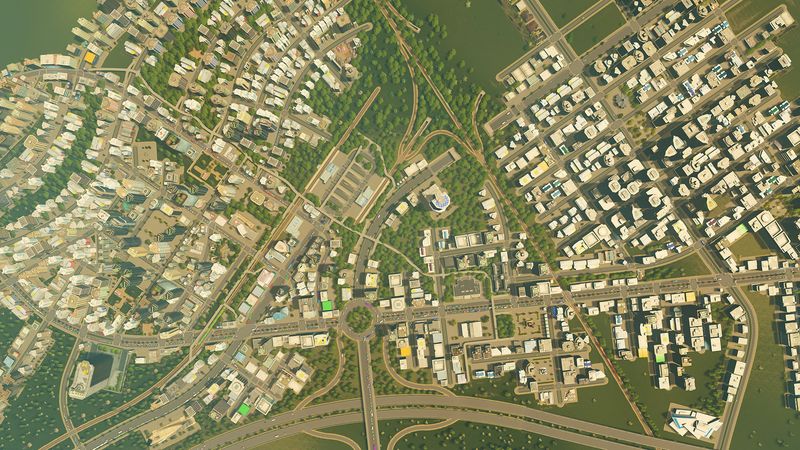
 Speaking of stories, even without heavy character-driven plots, the game weaves a narrative into your city’s evolution. Simple decisions create cascading consequences that build a unique urban saga. I love that the developers empower you to craft your own city story, as if every citizen plays a role in your urban drama. You become both an architect and a storyteller.
Speaking of stories, even without heavy character-driven plots, the game weaves a narrative into your city’s evolution. Simple decisions create cascading consequences that build a unique urban saga. I love that the developers empower you to craft your own city story, as if every citizen plays a role in your urban drama. You become both an architect and a storyteller.
 Right on, NewGamer. Even in a simulation, subtle narrative cues like changing traffic patterns at night add depth. These cues challenge you to adapt quickly, much like refining strategies during a speedrun. The game’s environmental interactivity truly enhances the experience.
Right on, NewGamer. Even in a simulation, subtle narrative cues like changing traffic patterns at night add depth. These cues challenge you to adapt quickly, much like refining strategies during a speedrun. The game’s environmental interactivity truly enhances the experience.
 Now, breaking down visuals and graphics: Colossal Order has done a stellar job with the art direction. The vibrant color palettes and architectural nuances give each district its own identity, which not only pleases the eye but also affects gameplay. I appreciate that the game runs impressively across different platforms and that the modding support pushes the boundaries of its graphical fidelity. The engine might not be the flashiest compared to AAA titles, but its focus on clarity and functionality perfectly suits the simulation genre.
Now, breaking down visuals and graphics: Colossal Order has done a stellar job with the art direction. The vibrant color palettes and architectural nuances give each district its own identity, which not only pleases the eye but also affects gameplay. I appreciate that the game runs impressively across different platforms and that the modding support pushes the boundaries of its graphical fidelity. The engine might not be the flashiest compared to AAA titles, but its focus on clarity and functionality perfectly suits the simulation genre.
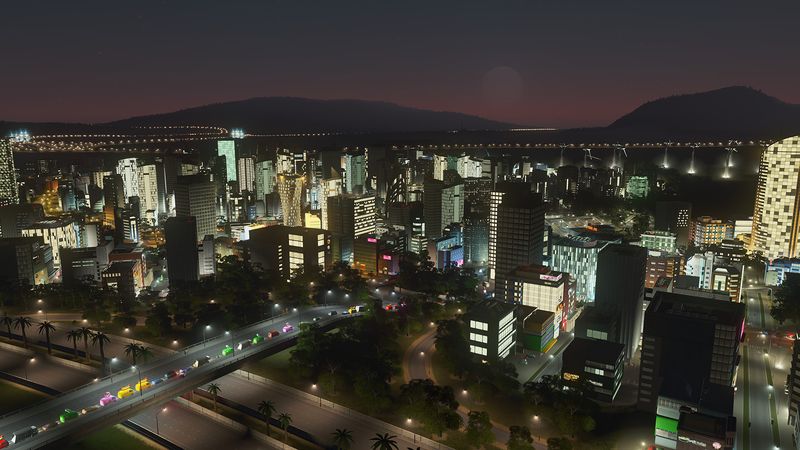
 The visuals are a delight for anyone who loves detail—the way each building and road is rendered, combined with fluid animations for citizens and traffic, enhances the realism. Even though the game may not push the limits of ultra-realistic graphics, its style fits the urban simulation atmosphere beautifully. As someone who enjoys tweaking every setting, it’s fantastic that I can download custom visual upgrades from the Steam workshop to keep my city looking fresh.
The visuals are a delight for anyone who loves detail—the way each building and road is rendered, combined with fluid animations for citizens and traffic, enhances the realism. Even though the game may not push the limits of ultra-realistic graphics, its style fits the urban simulation atmosphere beautifully. As someone who enjoys tweaking every setting, it’s fantastic that I can download custom visual upgrades from the Steam workshop to keep my city looking fresh.
 And don’t forget audio! The sound design, from ambient city noises to the well-composed soundtrack, really augments that immersive experience. Tracks often have a calming yet delightful rhythm, setting the perfect backdrop while you plan and execute your city’s growth. Even subtle sound cues help you manage critical services like water and electricity. It’s like music to the ears of every urban planner!
And don’t forget audio! The sound design, from ambient city noises to the well-composed soundtrack, really augments that immersive experience. Tracks often have a calming yet delightful rhythm, setting the perfect backdrop while you plan and execute your city’s growth. Even subtle sound cues help you manage critical services like water and electricity. It’s like music to the ears of every urban planner!
 Exactly—every sound effect is timed to perfection. When you’re trying to optimize for speed, knowing when a budget alert or a service disruption sound plays can be crucial for a quick recovery. The meticulous audio design is as important as its visuals for maintaining that high-paced efficiency.
Exactly—every sound effect is timed to perfection. When you’re trying to optimize for speed, knowing when a budget alert or a service disruption sound plays can be crucial for a quick recovery. The meticulous audio design is as important as its visuals for maintaining that high-paced efficiency.
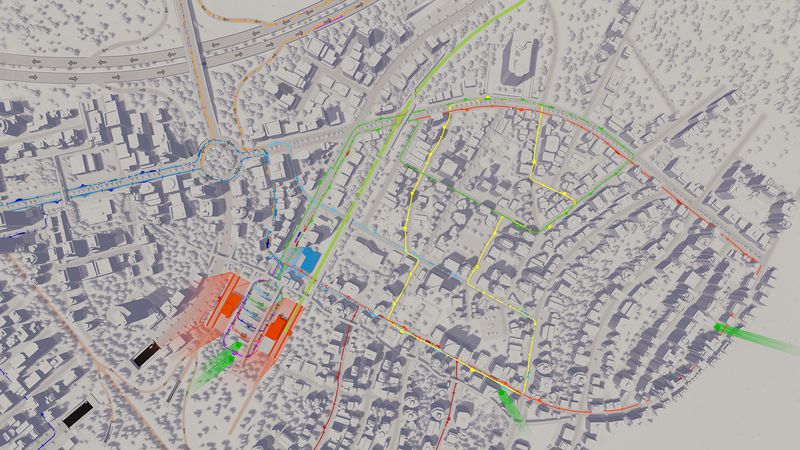
 Shifting to the challenge level, Cities: Skylines does an incredible job balancing complex urban planning with accessible gameplay. Whether you’re tackling tough puzzles in traffic management or facing the challenge of balancing governmental policies, there’s something for both the hardcore simulation enthusiast and the casual architect. User feedback generally highlights the smooth progression curves, even if occasional difficulty spikes demand strategic thinking—something our experienced gamers will appreciate.
Shifting to the challenge level, Cities: Skylines does an incredible job balancing complex urban planning with accessible gameplay. Whether you’re tackling tough puzzles in traffic management or facing the challenge of balancing governmental policies, there’s something for both the hardcore simulation enthusiast and the casual architect. User feedback generally highlights the smooth progression curves, even if occasional difficulty spikes demand strategic thinking—something our experienced gamers will appreciate.
 Indeed, the challenge comes in layers; you first master the basics, then you’re rewarded with increasingly complex urban dilemmas. It’s a perfect blend for those who seek a comprehensive challenge without overwhelming frustration. The rewards in achievements and the satisfaction of a well-run city add significant replay value.
Indeed, the challenge comes in layers; you first master the basics, then you’re rewarded with increasingly complex urban dilemmas. It’s a perfect blend for those who seek a comprehensive challenge without overwhelming frustration. The rewards in achievements and the satisfaction of a well-run city add significant replay value.
 And that replay value is impressive! Every playthrough can really be different because you’re not just following a fixed narrative; you’re building an entirely new urban tale each time. Experimenting with new district policies or altering your city layout naturally encourages multiple runs. It reminds me of other dynamic city-builders where creativity meets strategy.
And that replay value is impressive! Every playthrough can really be different because you’re not just following a fixed narrative; you’re building an entirely new urban tale each time. Experimenting with new district policies or altering your city layout naturally encourages multiple runs. It reminds me of other dynamic city-builders where creativity meets strategy.
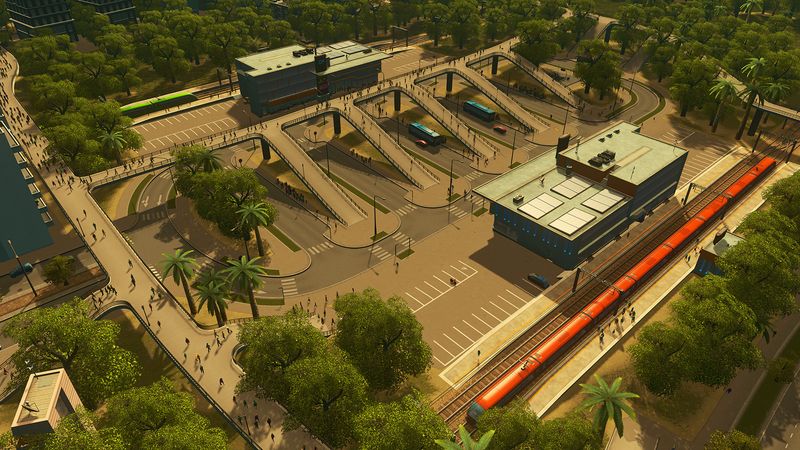
 For sure. From a speedrun perspective, each replay is an opportunity to fine-tune your approach, discover shortcuts in traffic management, and perfect your route through urban crises. The game’s structure really rewards persistent experimentation and quick problem-solving.
For sure. From a speedrun perspective, each replay is an opportunity to fine-tune your approach, discover shortcuts in traffic management, and perfect your route through urban crises. The game’s structure really rewards persistent experimentation and quick problem-solving.
 Before we wrap up, let’s brainstorm a few similar games that capture that unique simulation feel. For those who love Cities: Skylines, I’d recommend checking out SimCity for a classic urban simulation experience, Tropico 6 for its quirky political twist and island management, Anno 1800 for historical economic strategy and rich visuals, Banished for its survival-based city management, and maybe even Frostpunk, which blends city-building with challenging ethical dilemmas in an apocalyptic setting.
Before we wrap up, let’s brainstorm a few similar games that capture that unique simulation feel. For those who love Cities: Skylines, I’d recommend checking out SimCity for a classic urban simulation experience, Tropico 6 for its quirky political twist and island management, Anno 1800 for historical economic strategy and rich visuals, Banished for its survival-based city management, and maybe even Frostpunk, which blends city-building with challenging ethical dilemmas in an apocalyptic setting.
 Those are excellent picks. Each of these games offers a unique spin on the simulation genre, rewarding gamers who are detail-oriented and love to immerse themselves in a well-crafted system. I particularly appreciate how they balance historical or fantastical storytelling elements with gameplay depth.
Those are excellent picks. Each of these games offers a unique spin on the simulation genre, rewarding gamers who are detail-oriented and love to immerse themselves in a well-crafted system. I particularly appreciate how they balance historical or fantastical storytelling elements with gameplay depth.

 I’d definitely add these to my must-play list. Whether you’re new to these kinds of games or you’re a seasoned urban planner, there’s plenty of variety out there. These games hold a lot of potential for surprises and creative exploration, just like Cities: Skylines.
I’d definitely add these to my must-play list. Whether you’re new to these kinds of games or you’re a seasoned urban planner, there’s plenty of variety out there. These games hold a lot of potential for surprises and creative exploration, just like Cities: Skylines.
 And remember, no matter if you’re optimizing for speed or thoroughly enjoying every minute of planning, there’s something in each of these games that caters to your style. Happy city building, everyone!
And remember, no matter if you’re optimizing for speed or thoroughly enjoying every minute of planning, there’s something in each of these games that caters to your style. Happy city building, everyone!
 In conclusion, Cities: Skylines stands out as a unique and rewarding experience thanks to Colossal Order and Paradox Interactive. It masterfully blends in-depth simulation, creative storytelling, and flexible gameplay mechanics to address diverse player preferences—from meticulous planners to daring speedrunners. Keep exploring, strategizing, and building your dream city!
In conclusion, Cities: Skylines stands out as a unique and rewarding experience thanks to Colossal Order and Paradox Interactive. It masterfully blends in-depth simulation, creative storytelling, and flexible gameplay mechanics to address diverse player preferences—from meticulous planners to daring speedrunners. Keep exploring, strategizing, and building your dream city!
